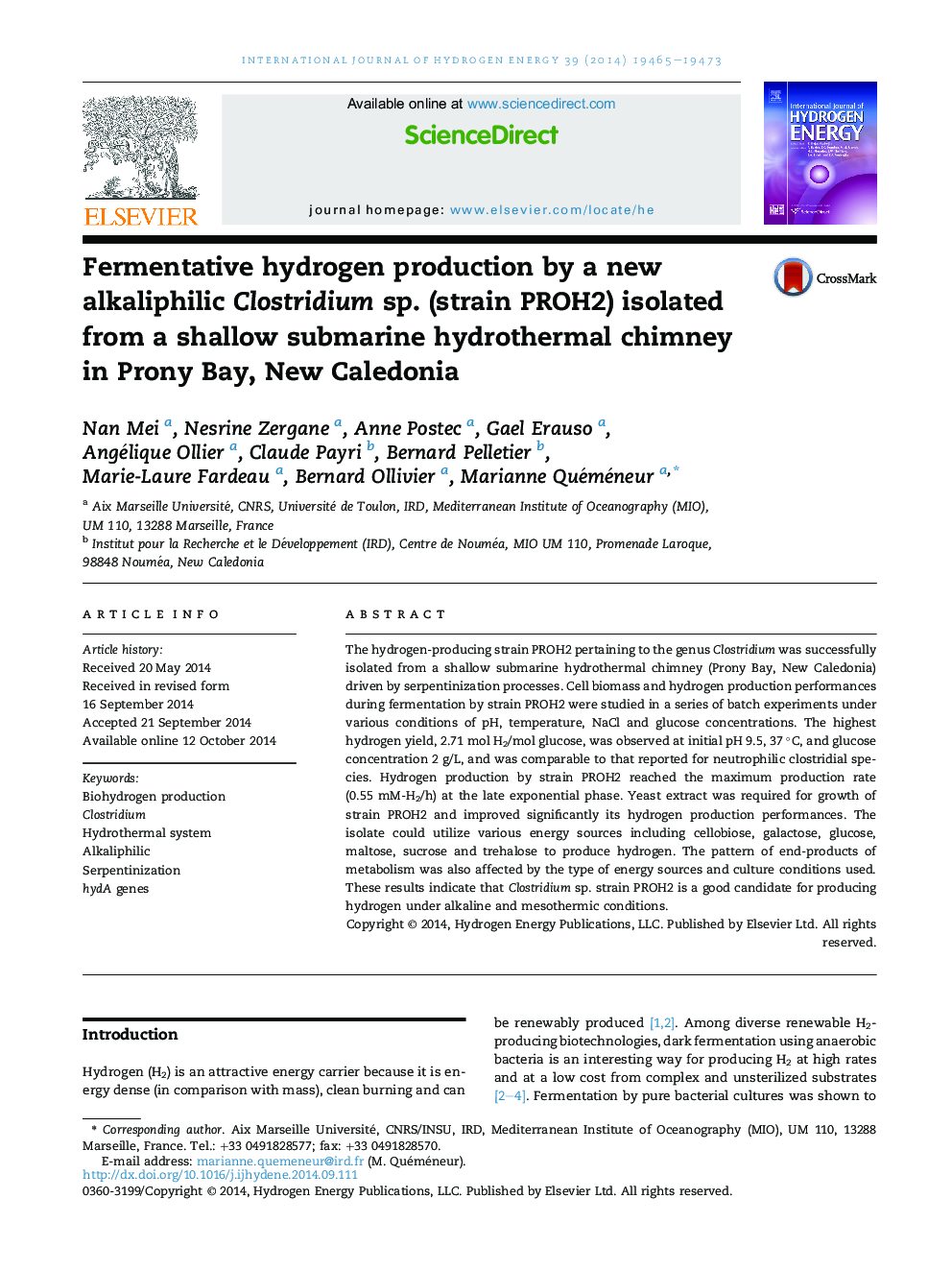| Article ID | Journal | Published Year | Pages | File Type |
|---|---|---|---|---|
| 1280698 | International Journal of Hydrogen Energy | 2014 | 9 Pages |
•A new anaerobic alkaliphilic H2-producer was isolated from a serpentinite-hosted ecosystem.•16S rDNA sequence analysis of strain PROH2 revealed its assignment to a novel Clostridium species.•The maximum H2 productions were obtained at 37 °C, initial pH 9.5 and 2 g/L of glucose.•The isolate is a good candidate for H2 production under alkaline conditions due to its high H2 yield.•It is the first anaerobic microorganism producing H2 at both high pH and low salinity.
The hydrogen-producing strain PROH2 pertaining to the genus Clostridium was successfully isolated from a shallow submarine hydrothermal chimney (Prony Bay, New Caledonia) driven by serpentinization processes. Cell biomass and hydrogen production performances during fermentation by strain PROH2 were studied in a series of batch experiments under various conditions of pH, temperature, NaCl and glucose concentrations. The highest hydrogen yield, 2.71 mol H2/mol glucose, was observed at initial pH 9.5, 37 °C, and glucose concentration 2 g/L, and was comparable to that reported for neutrophilic clostridial species. Hydrogen production by strain PROH2 reached the maximum production rate (0.55 mM-H2/h) at the late exponential phase. Yeast extract was required for growth of strain PROH2 and improved significantly its hydrogen production performances. The isolate could utilize various energy sources including cellobiose, galactose, glucose, maltose, sucrose and trehalose to produce hydrogen. The pattern of end-products of metabolism was also affected by the type of energy sources and culture conditions used. These results indicate that Clostridium sp. strain PROH2 is a good candidate for producing hydrogen under alkaline and mesothermic conditions.
